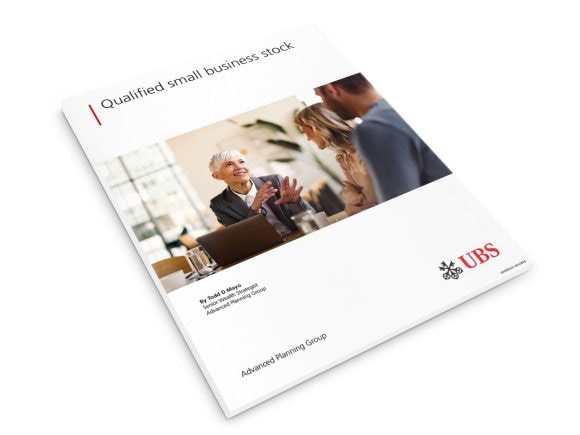Qualified small business stock
Considerations for business owners and shareholders


![]()
header.search.error
Considerations for business owners and shareholders

For business owners with qualified small business (QSB) stock, federal tax laws offer sizable tax benefits upon the sale or exchange of these equity interests in the business. Here’s some key considerations for both business owners and shareholders to keep in mind.
Despite the complexity of the rules governing QSB stock, the potential tax savings are sizable. As an owner of QSB stock, you may benefit from planning strategies to enhance potential tax savings. As a business owner, you may also want to consider structuring—or restructuring—your business (when feasible) so that the shares qualify as QSB stock.
estimated amount individuals will exclude from QSB stock in 20251

An individual or trust who owns qualified small business (QSB) stock can potentially defer or exclude gain on the sale or exchange of the stock. They can generally
For many shareholders, the excludable gain is $10 million or more per company (subject to certain limitations if the stock was acquired before September 28, 2010). Moreover, with proper planning (often involving trusts), a shareholder can stack (multiply) the exclusion, further enhancing the benefits of owning QSB stock.
To the extent gain from the sale or exchange of QSB stock isn’t excluded from a shareholder’s income, it may be subject to either a special 28% tax rate (rather than the regular capital gains tax rate). In addition, it may be subject to the 3.8% net investment income tax.
For shares to qualify as QSB stock, they must satisfy an intricate array of company-level and shareholder-level requirements.
Company-level requirements
For its shares to qualify as QSB stock, a company must:
Shareholder-level requirements
For shares to qualify as QSB stock, they must have been issued after August 10, 1993.7 The shareholder must have acquired the shares from the company in exchange for:
Alternatively, the shareholder must have acquired the shares
In each of those three cases, the shares must have qualified as QSB stock in the prior shareholder’s hands.9

As a shareholder, your ability to defer or exclude gain upon the sale of QSB stock is based in part on the holding period. As a general rule, this begins when the company issues the shares to the shareholder.10
A shareholder who has held shares of QSB stock:
With proper planning, a shareholder can stack (or multiply) the exclusion. If, for example, the shareholder contributes QSB stock to a nongrantor trust (which is a trust that, for income tax purposes, is treated as a separate taxpayer), the trust may qualify for its own exclusion upon the sale or exchange of its stock.
A shareholder who has substantial holdings in QSB stock thus might create multiple nongrantor trusts for purposes of obtaining the benefit of multiple exclusions. These trusts may include completed gift trusts and incomplete nongrantor (ING) trusts.
When using multiple trusts for purposes of stacking, the trusts must have different primary beneficiaries. If two or more trusts have substantially the same settlors and primary beneficiaries, then they may be treated as a single trust for income tax purposes.14

Given the favorable treatment of QSB stock, business owners may benefit from structuring—or restructuring—their businesses (when feasible) so that the shares qualify as QSB stock.
A company’s shares can qualify as QSB stock only if the company is classified as a C corporation.15 At the time of the restructuring, the converted company must meet all of the company-level and shareholder requirements for QSB stock.
For purposes of the five-year holding period for excluding gain from the sale or exchange of QSB stock of a converted company, a shareholder’s holding period generally begins upon the completion of the restructuring.16
For more information about qualified small business stock strategies, see our publication Qualified Small Business Stock. Connect with a UBS Financial Advisor to understand how our estate planning strategies can help address your particular needs.
